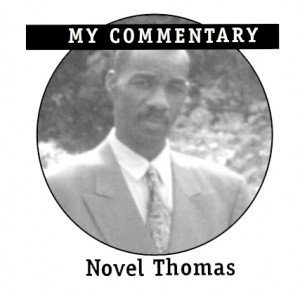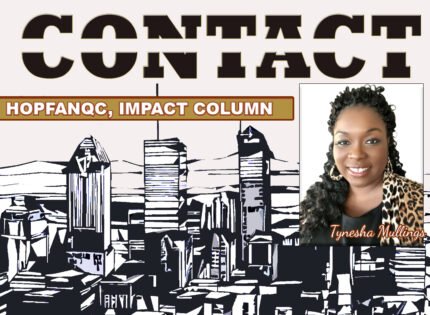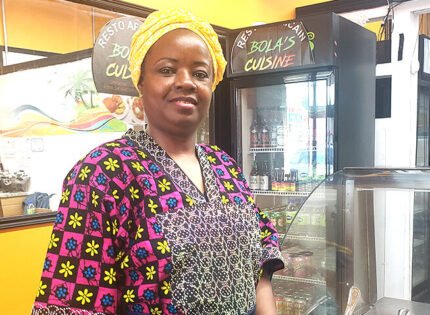 The End Of Rhodes, Rhodesia, and Robert Mugabe
The End Of Rhodes, Rhodesia, and Robert Mugabe
At a certain point in my existence I began to pay closer attention to the news… especially in relation to Black people (of the African Diaspora) vis-à-vis our place in the world…) our on the global stage and how our lives were being impacted by geopolitical events, especially those unfolding on the African continent.
Listening to, reading about, or watching news coming out of Africa, the stories were almost predictable: drought, famine, starvation, and predictable multinational NGO appeals to the developed world for assistance…). And there were wars, recurring coups d’états… resulting human displacement, refugees… All that confusion became the norm as the global powers of the day, with the complicity of their multiple continental proxies (vied for control of the African continent and its resources – not to “help” the continent’s beleaguered and besieged peoples, but to access and control them – the continent’s bountiful mineral and other natural resources (all of which the (developed, developing…) world crave and continue to exploit in order to satisfy their various “developed world” needs and industries.
To state unequivocally, the African continent has become the primary source of the resources… materiel that that certain section (and collective demographic) of the world has controlled since “contact” was made back when… All that “forced generosity” notwithstanding, the African continent has not been any better for it.
Out of colonialism, anti-colonialist, and neo-colonialist struggles, Africa has become a political free-for-all as neo-colonialist and a parade of benevolent and murderous dictators have used their (pseudo) democratic, autocratic and dictatorial authority to emulate the practices of former colonial masters. The evidence is a dysfunctional continent under the guidance of a collection of self-serving men, the majority of whose primary focus is the enriching of, as an old gentleman I know likes to say is, “me, my family, and my friends…”
And evidence of Africa’s post-colonial reality is historic and prevalent. A continent with so much (which others continue to exploit) yet does so little for the rightful owners of the land and natural resources; most of them are yet to realize the tangible benefits of their (natural resource) birthright.
Here’s why, courtesy of a Transparency International tidbit I recently read. “[…] Africa is blessed with natural resources like gold, oil, diamonds, cobalt, copper, uranium, silver, bauxite, cocoa beans, and petroleum. Unfortunately the standard of living of many people on the continent is deplorable. This is largely due to corrupt governments ruling many countries on the African continent….”
It wants to be seen to be doing more to spread the country’s now diminished oil wealth, which has only benefited a thin slice of Angolan society, and to address serious social issues from unemployment to poor healthcare.
Here’s an example, mineral-rich Angola, the fief of another politician-autocrat, José Eduardo dos Santos. For 38 years he controlled the country, ensuring that his offspring and members of his coterie were well taken of, courtesy of the nation’s oil and other resources. Me, my family, my friends…
After his extended grip on Angola, dos Santos was recently forced to relinquish power, apparently “retiring” due to ill health. But his presence will still be felt when a new leader takes the reigns of power. According to reports it will be someone from the MPLA (People’s Movement for the Liberation of Angola), the party that has ruled the country since its 1975 independence from Portugal, one of the poorest countries in Europe, which lorded over a handful of colonies during the sordid days of colonialism.
Dos Santos’ retirement – reportedly prompted by ill health – has “triggered the biggest political transition in decades” for Angola, a leading oil exporter on the continent.
It’s Africa, so José Eduardo dos Santos presence and influence will still be felt. According to reports, “His chosen successor, Defence Minister Joao Lourenco, is a loyalist who is predicted to avoid immediate change in a government often criticized for corruption and failure to tackle dire poverty.”
[Here’s some context. Isabel Dos Santos, “Africa’s richest woman, mostly due to her father’s former position as President, facilitating lucrative deals outside the law, nicknamed “the princess” by poorer Angolans – many of whom struggle on less than $2 a day – is reportedly worth US$3.4bn.]
Here’s another tidbit of stupendous African disparity. Former Nigerian President Goodluck Jonathan declared his assets worth US$1.8bn. His wife, Patience, the richest First Lady ever in Nigeria, is worth US$31.4m.
Goodluck and Patience! The Dos Santos, and others, a reflection of yesteryears’ and today’s Africa and its filthy wealthy politicians. Juxtapose those images of [African politicians’] wealth and opulence with those of drought, death, starvation, and existence, refugees that have become the continental norm.
However, on 9 October 2014, the richestlifestyle.com website ranked Mr. Jonathan sixth on its list, claiming his net worth was about $100m (£62m).
And then there’s Zimbabwe. I too was ecstatic back in the late 1970s as the war to liberate Rhodesia heated up; it was approaching its climax.
With a guerilla war taking a toll and [white] nations and political leaders gradually distancing themselves from Rhodesia, Ian Smith who famously declared that he did not believe in Black majority rule over Rhodesia, “not in a thousand years,” was just that.
But the entrenched system of white rule on the Africa continent was untenable; Europe’s (Great Britain’s) colonial hold on Africa was loosening under the pressure of unstoppable anti-colonial guerilla fighters.
As one article states “[…] it was not international pressure that ultimately proved the white government’s downfall. Instead it was the armed resistance of the black opposition, which had started attacking white farms in 1972, and the withdrawal of support from the apartheid government in South Africa.”
The apartheid nation, too, was quietly pondering the inevitability of the collapse of its deeply entrenched racist system.
And Smith’s regime ultimately succumbed to the inevitable; he “agreed to a form of majority rule.” Something called the Lancaster House agreement paved the way for formal independence in 1980, when the country’s name changed to Zimbabwe and Mugabe’s ZANU-PF party took power, with him becoming prime minister.
Yes, I was aware of the reality of white nations, such as (colonial mother) Great Britain, Australia, the U.S., etc. would do all in their power to sabotage the hopes of the liberated, new African country, Zimbabwe. This was Africa on the verge of completely freeing itself from the vestiges of colonialism. [South Africa and Southwest Africa (now Namibia) were the next stops.]
I remember prominent Zimbabwe freedom fighters such as Ndabaningi Sithole, Joshua Nkomo, Arthur Mutambara, and others, but in the end the name Robert Mugabe and the man emerged as the founding father of Zimbabwe, to the chagrin of those who hoped Rhodesia would forever be a Great Britain enclave on the African continent.
And he would ultimately run Zimbabwe into the ground: creating what many at times refereed to as a police state, internal political and resulting social conflict, a collapsed economy and more…
No matter the white economic backlash (sanctions), along with recurring social insurrection the during of his 37-year reign, Robert Mugabe remained steadfast, stating at a 2008 rally, “[…] Only God, who appointed me, will remove me – not the MDC, not the British. Only God will remove me!”
It seemed like the tenacious Robert Mugabe (in a 2000 interview an aging Ian Smith described him as “mentally deranged”) even at age 93, would have his wish. But eventually the forces of change, much like the drive for Black liberation in Rhodesia, were unstoppable.
At least no blood was spilled. Call it a benevolent coup d’état.
Now if only the rest of Africa’s long-serving leaders – and all the rest of them who have surpassed their Best Before Dates –would stop amassing and absconding with the continent’s resource wealth and use it towards modernizing the continent much like what continues to be done in Arabia’s deserts: building infrastructure, elevating people.















